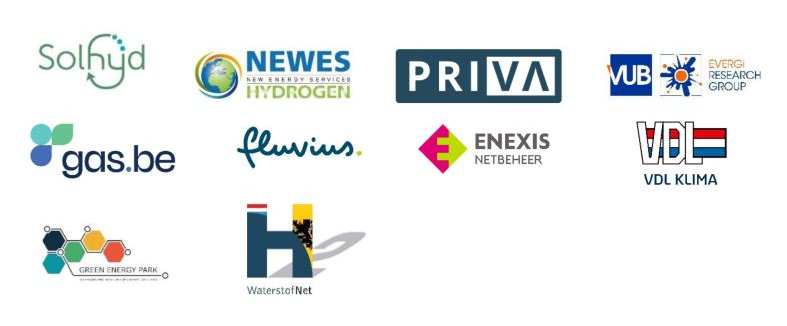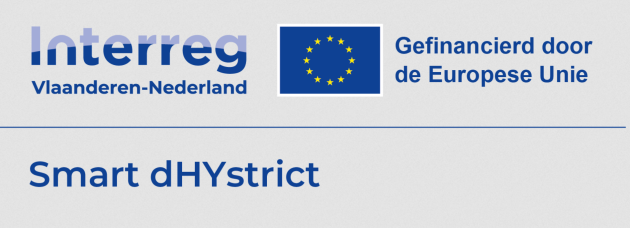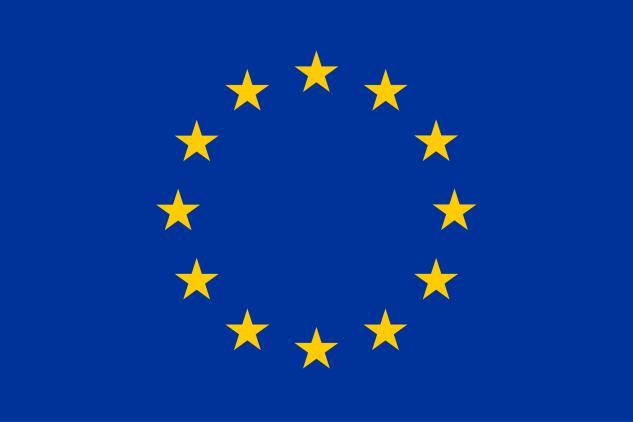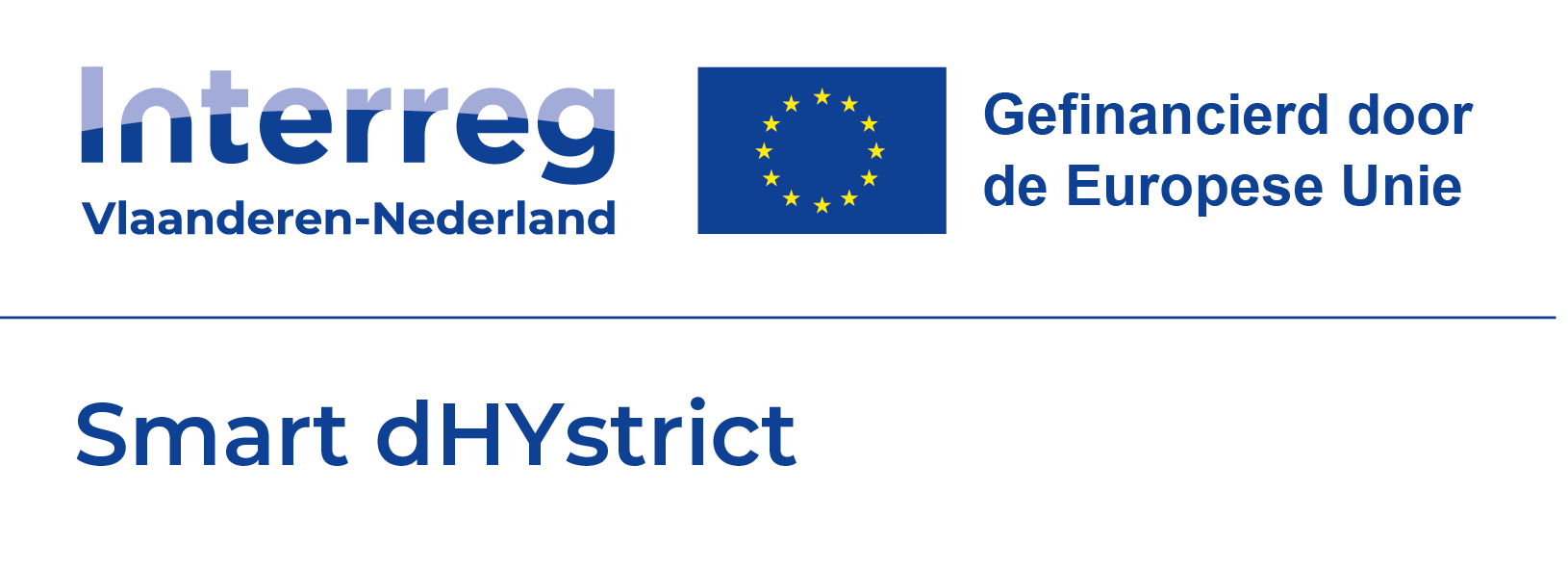H2 in local energy systems
Smart dHYstrict
01/07/2024 - 30/06/2027
Smart dHYstrict investigates the cost-efficient deployment of hydrogen in local energy systems, to drastically reduce the strain on the electricity grid. The project aims to combine various technologies, such as optimal local consumption and temporary storage of excess energy in the form of hydrogen.
Smart dHYstrict is testing various configurations at two complementary pilot sites:
- at Green Energy Park in Zellik (BE), distribution and storage of hydrogen will be done via a hydrogen distribution network and associated hydrogen tanks, both of which will be deployed bidirectionally (injecting and extracting hydrogen)
- on VDL's industrial site in Eindhoven (NL), the hydrogen will be stored locally as compressed gas and/or in the form of another carrier in a ‘low grid’ pilot site
Both locations will deploy a smart energy management system (EMS) under real-world conditions. Smart dHYstrict will organise visits and workshops to inform businesses, stakeholders and local authorities and introduce the wider public to hydrogen.
Consortium
In addition to VDL Klima (NL) and Green Energy Park (BE), the Smart dHYstrict consortium consists of: technology developers Solhyd (BE) and NEWES (NL), knowledge organisations The Vrije Universiteit Brussel (VUB) and Gas.be (BE), distribution system operators Fluvius (VL) and Enexis (NL), high-tech company Priva (VL,NL) that will develop the EMS and project coordinator WaterstofNet (VL,NL).

Role of WaterstofNet
Within the Interreg Flanders-Netherlands project Smart dHystrict, WaterstofNet fulfils the role of project coordinator. WaterstofNet also takes care of general project communication and specific communication in cooperation with the living lab sites. In addition, WaterstofNet leads the work package focusing on overarching themes such as safety, regulation as well as techno-economic analysis.
More info at: interregvlaned.eu
Smart dHYstrict is funded within the Interreg VI programme Flanders-Netherlands, the cooperation programme with financial support from the European Regional Development Fund (ERDF).


Contact project manager Stefan Neis:

